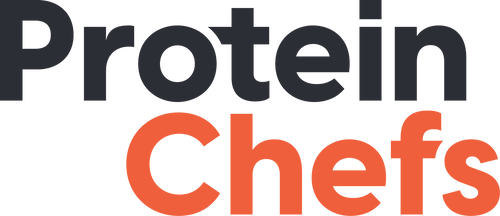In asking, “What do athletes eat?”, you should know that maintaining a good meal plan, and eating healthy foods can significantly enhance athletic and general physical performance. An optimally planned, nutritious meal plan satisfies an athlete's vitamin and mineral requirements, while providing sufficient lean protein to promote muscle growth and repair.
It doesn’t matter if you are a professionally competing athlete or someone who engages in occasional sports activities. The fundamental requirement for improving sports performance is a nutritionally balanced diet.
What Do Olympic Athletes Eat?
You might be wondering: What do athletes eat before the Olympic Games? And how is it any different from your regular meals? Most of what elite athletes eat is very similar to what most people already eat, and is what we all should have in our meal plan for peak performance and general health.
Athletes focus on eating high-quality foods that fit the demands of their training regiments. A healthy diet for someone training includes vegetables, fruits, lean meat, cereals, and other go-to essentials like whole grain cereals.
Michael Phelps, Team USA’s former competitive swimmer and Olympic gold medalist, claims that keeping fit and maintaining good exercise, food, and rest balance helped him as a professional swimmer. Most importantly, he wasn’t afraid to fuel! At some points in his training, Phelps would consume 12,000 calories per day!
Make Your Dietary Game As Strong As Your Physical Game
Protein Chefs’ nutritious, on-the-go, diet-specific meals make eating healthy easier than ever.
Browse Our Menu
What do Athletes Eat Before a Game?
How should regular athletes structure their nutrition plans to reach their own peak fitness? What do CrossFit athletes eat?
Below, we discuss the essentials for a balanced meal plan that will help all types of athletes train harder and recover faster.
Vegetables and Fruits
Vegetables and fruits provide your body with carbohydrates, vitamins and minerals, fiber, water, and antioxidants. These elements work together to support energy, hydration, digestion, and injury recovery and prevention. Along with a mesh of starchy vegetables such as corn and peas, veggies and fruits should make up 50% of your daily food intake.
Quality Carb Loading
There’s a myth that high-carb intake is a bad dietary habit, and some sports dieticians have even advised against it. But that isn’t necessarily the case. Depending on your body mass, level of physical exercise, and the frequency of your training day activities, you may need to consume more carbs (45 – 65%) such as potatoes, whole grains, brown rice, and quinoa.
Even CrossFit athletes eat carbs to not only replenish and recover depleted energy, but to also gain essential nutrients.

Whole Grains
This is a carbohydrate-rich food source that’s in a class of its own, due to the fact that it’s one of the most recommended meals athletes eat before a game. Whole grains are rich in vitamins, minerals, carbs, and fiber which provide sustenance during high-intensity activities and also recovery afterward, and consumption rate is based on physical activity level.
Proteins
From a good source of protein, such as eggs, beans, legumes, dairy foods, lean meat, and fish, you can get all the essential amino acids your body is unable to produce.
With 15–25% protein per meal, you could employ a combination of selected plant-based and animal-based proteins to maximize muscle maintenance. You’ll also improve cell structure and other necessary chemical reactions in the body.
Hydration and Proper Rest
Another necessity to be included in your meal plan for the day is hydration and rest. Both are essential to performance and nutrient absorption.
Hydration is necessary for almost every biological function, which implies a continuous and period intake at every hour of the day (sports drinks could be used as a substitute). Rest is sometimes regarded as the cheapest performance-enhancing drug because, during the sleep process, your body and mind go through rapid recovery.







